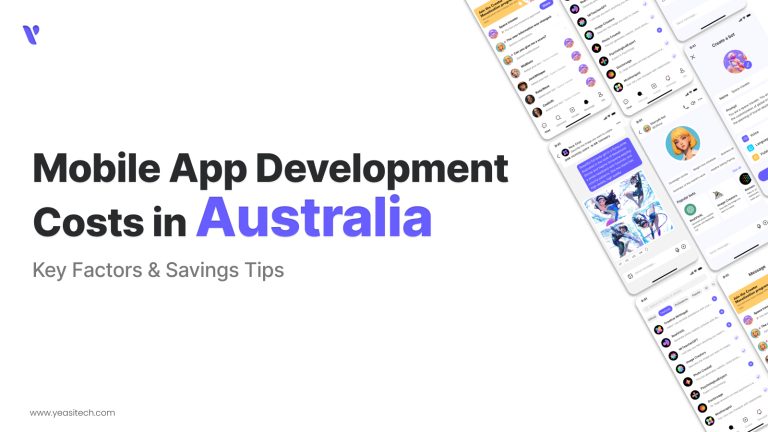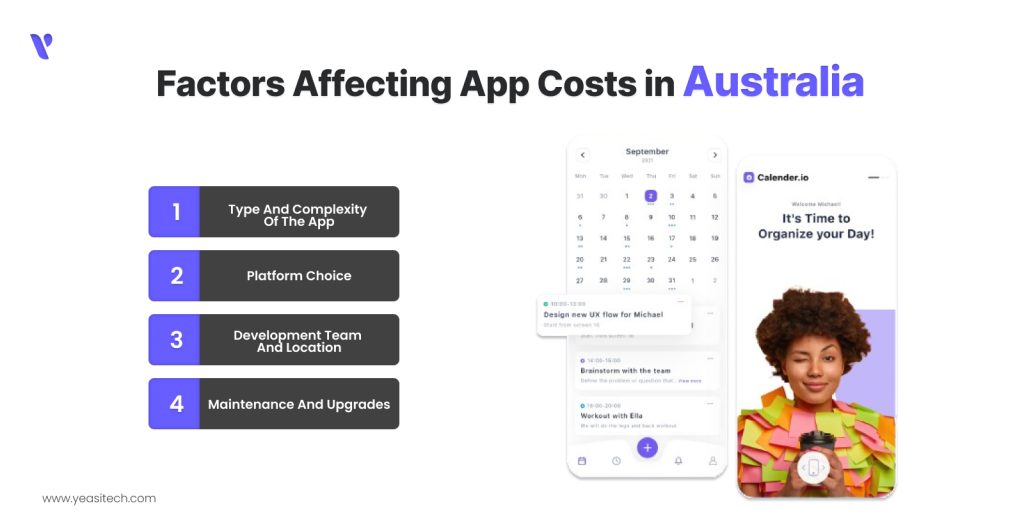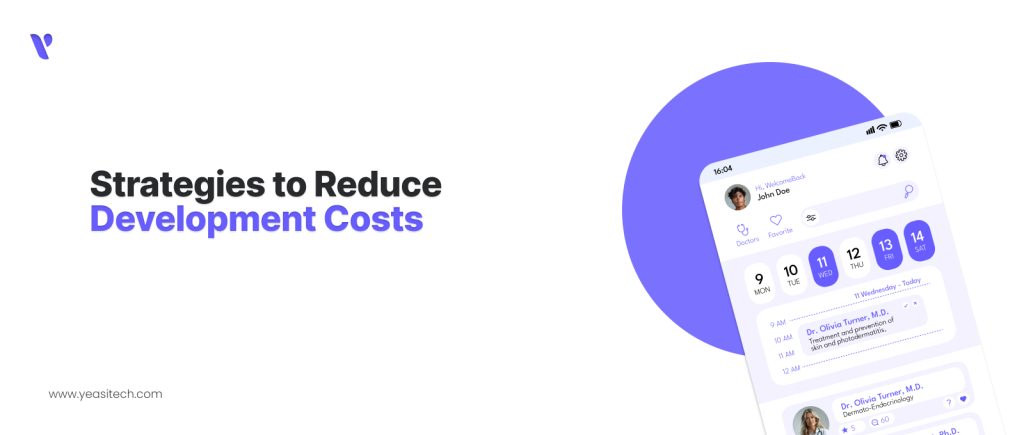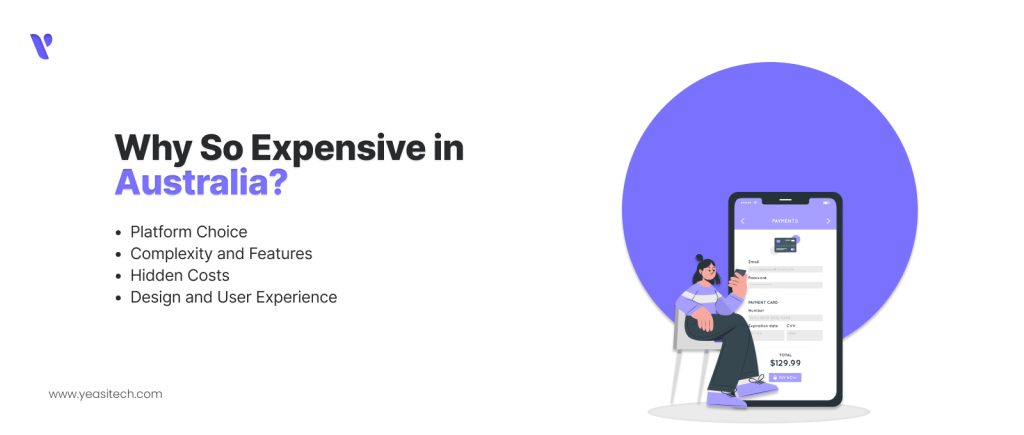Mobile App Development Costs in Australia: Key Factors & Savings Tips

You’re not alone if you’re wondering about the cost of developing an app in Australia. This blog will delve into the factors influencing mobile app development costs and offer expert advice on creating a top-notch mobile app for your business without exceeding your budget.

The mobile app industry is booming, with apps for shopping, games, social media, food delivery, and learning. However, mobile app development costs in Australia vary based on several key factors. Let’s explore what affects the cost of developing mobile apps in Australia:
The nature and complexity of an app significantly determine its cost:
High-end, Full-featured Apps: AUD 300,000 to AUD 450,000
Basic Applications: AUD 45,000 to AUD 120,000
Complex Apps with Smart Functionality: AUD 120,000 to AUD 300,000
According to Statista, Android is the most widely used smartphone operating system in Australia, with a 52.9% market share. Despite Android’s dominance in the smartphone industry, iOS is steadily catching up and now accounts for more than 47% of the market.
The location of your development team also impacts costs. Developers in larger cities like Sydney and Melbourne charge higher fees compared to those in smaller towns or rural areas. The hourly rate ranges from AUD 100 to AUD 250.
Post-launch care and updates are ongoing expenses, typically 15% to 20% of the original development cost annually. This includes bug fixes, new features, and OS compatibility updates.

Mobile app development in Australia can be expensive, but there are ways to manage and reduce these costs. One effective approach is to consider working with developers from countries with lower labor costs, such as India. Here are some strategies to help you reduce mobile app development costs:
Clearly define the app’s goals, features, and requirements at the start. This helps avoid unnecessary work and costs, ensuring the project stays on budget and on schedule.
Developing a single app that works on both iOS and Android can save time and resources. Cross-platform development can be more cost-effective than creating separate apps for each platform.
Start with a basic version of your app that includes only the essential features. This MVP approach allows you to launch quickly, gather user feedback, and then add more features over time, spreading out development costs.
Leverage open-source libraries and frameworks. These can save significant time and money, as they are often free and maintained by a community of developers. Ensure they meet your app’s needs and security standards.
Indian developers offer high-quality services at a fraction of the cost of Australian developers. Outsourcing to India can dramatically reduce your development expenses while maintaining excellent standards. Just ensure to vet potential partners thoroughly to ensure quality and effective communication.
Consider using app builders or pre-made templates for some app features. These templates can be customized to fit your needs, saving both time and money.
Prioritize the most important features for your app. Avoid adding unnecessary functionalities that complicate development and increase costs. Keeping the app simple can help you stay within budget and speed up the launch process.
Invest in comprehensive testing to catch and fix issues early. Early detection of bugs and problems is usually less costly than post-launch fixes, ensuring a smoother and more cost-effective development process.

Developing for both iOS and Android essentially doubles the work. Each platform requires different coding languages and testing processes, meaning developers need to create and optimize separate versions of the app. This results in significantly higher development costs as you’re essentially building two apps from scratch.
The more complex the app, the more expensive it becomes to develop. Basic apps with minimal features are cheaper, but adding advanced functionalities like real-time data syncing, social media integration, push notifications, or custom algorithms increases development time and cost. Each feature adds layers of complexity that require more coding, testing, and troubleshooting.
There are many costs that aren’t always obvious upfront. These include fees for app store submissions, ongoing data storage, server costs, and expenses related to marketing the app once it’s live. Legal compliance, such as meeting privacy laws and protecting user data, also adds to the cost, as businesses must ensure their apps adhere to regulations like GDPR.
A visually appealing and intuitive user interface comes with a high price tag. Apps with complex designs, custom graphics, and smooth animations take more time to develop and test. Skilled designers and UX specialists charge premium rates to ensure the app looks good and functions well, adding another layer to the overall cost of development.
Understanding mobile app development costs is key for effective budgeting. While development in Australia is expensive, outsourcing to more affordable regions like India can significantly reduce costs. Key factors include app complexity, design, and ongoing maintenance.
By setting clear objectives, choosing cross-platform development, starting with a Minimum Viable Product (MVP), and using open-source software, you can manage costs effectively. Outsourcing to skilled Indian developers offers high-quality, cost-effective solutions. Focus on essential features and thorough testing to further optimize the process.
Strategic planning and informed decisions will help you create a successful, budget-friendly mobile app that meets your business needs.
Development timelines range from 3 months to over a year, depending on the app’s complexity and features.
Australian development costs are higher, ranging from AUD 25,000 to over AUD 300,000. Indian developers can reduce costs by 50% or more.
For a detailed quote, timeline, and more, discuss your project with our developers.
Define clear objectives
Opt for cross-platform development
Outsource to Indian developers
Start with a Minimum Viable Product (MVP)
Use open-source software
Focus on essential features
Yes, you can start with a Minimum Viable Product (MVP) that includes only essential features. This approach reduces initial development costs and allows you to gather user feedback before investing in additional features, helping you manage your budget effectively.
Absolutely. Outsourcing to countries like India can significantly lower costs without compromising quality. Many overseas developers offer high-quality services at a fraction of the price, making it a cost-effective solution for businesses in Australia looking to develop mobile apps.
When selecting a development team, consider their experience, portfolio, and expertise in your industry. Also, compare hourly rates, location (developers in major cities charge more), and their ability to provide ongoing support and updates, which are crucial for long-term app success.
YeasiTech is a trusted IT service partner with 8+ years of experience, empowering 250+ businesses with scalable web, mobile and AI solutions.
Explore related topics to broaden your understanding and gain actionable insights that can transform your strategies.